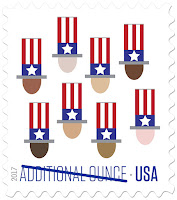 |
| From the Alfred Whital Stern Collection of Lincolniana
in the Library of Congress
|
More than 150 years ago, a letter was hand-delivered to Mrs. Lydia Bixby of Boston by the adjutant
general of Massachusetts. The letter was presented as correspondence from President Abraham Lincoln, offering his condolences on the deaths of her five sons in the Civil War. Controversy has surrounded the letter since it was first received. And this week, Time magazine's website features an article by Lily Rothman, Time history and archives editor, regarding the latest research on the letter.
According to Time, a working group at the Center for Forensic Linguistics at Aston University in Birmingham, England, has been using forensic linguistics to solve the mystery about who really wrote the letter.
As a 1995 article in the "Journal of the Abraham Lincoln Association" explains, the situation was full of drama from the beginning. Not only did Mrs. Bixby not have five sons die in the war, but she was a Southern sympathizer and reportedly tore up the letter shortly after receiving it. Apparently, before it was delivered to Mrs. Bixby, though, the letter was shared with the
Boston Evening Transcript and the
Boston Evening Traveller, which published it. That's how we know about it today. The copy that is known today, pictured above, is thought to be a copy of a forgery.
But, the issue that has brought 21st century technology together with 19th or 20th century handwriting is the true author of that letter. It is possible -- and even likely, according to the Time article -- that Lincoln's secretary, John Hay wrote the letter. The group that has been researching the letter will present a paper on the topic at the ninth International Corpus Linguistics Conference at the University of Birmingham in Birmingham, England, on Wednesday, July 26.
They compared the writing of Lincoln and Hay to that of the letter to determine who actually wrote it. Although that concept has been around for quite some time, the use of computer technology makes it even more certain that Hay wrote the letter for Lincoln.
You can read the
Time article here and the
Journal of the Abraham Lincoln Association article here. They are both interesting reads.
Regardless of whether the author of the letter was Lincoln or Hay, it is an elegant example of a sympathy letter. The letter says, "I feel how weak and fruitless
must be any words of mine which should attempt to beguile you from
the grief of a loss so overwhelming." And, "I pray that our Heavenly Father may assuage the anguish of your
bereavement, and leave you only the cherished memory of the loved and
lost, and the solemn pride that must be yours to have laid so costly a
sacrifice upon the altar of Freedom."

 This year, the U.S. Postal Service released a set of stamps featuring Disney's villains. But, in 2004, the Disney stamps featured Disney friends. I looked around online, and it looks like you can still find a few of the friends stamps, if you're willing to pay more than face value.
This year, the U.S. Postal Service released a set of stamps featuring Disney's villains. But, in 2004, the Disney stamps featured Disney friends. I looked around online, and it looks like you can still find a few of the friends stamps, if you're willing to pay more than face value.















































